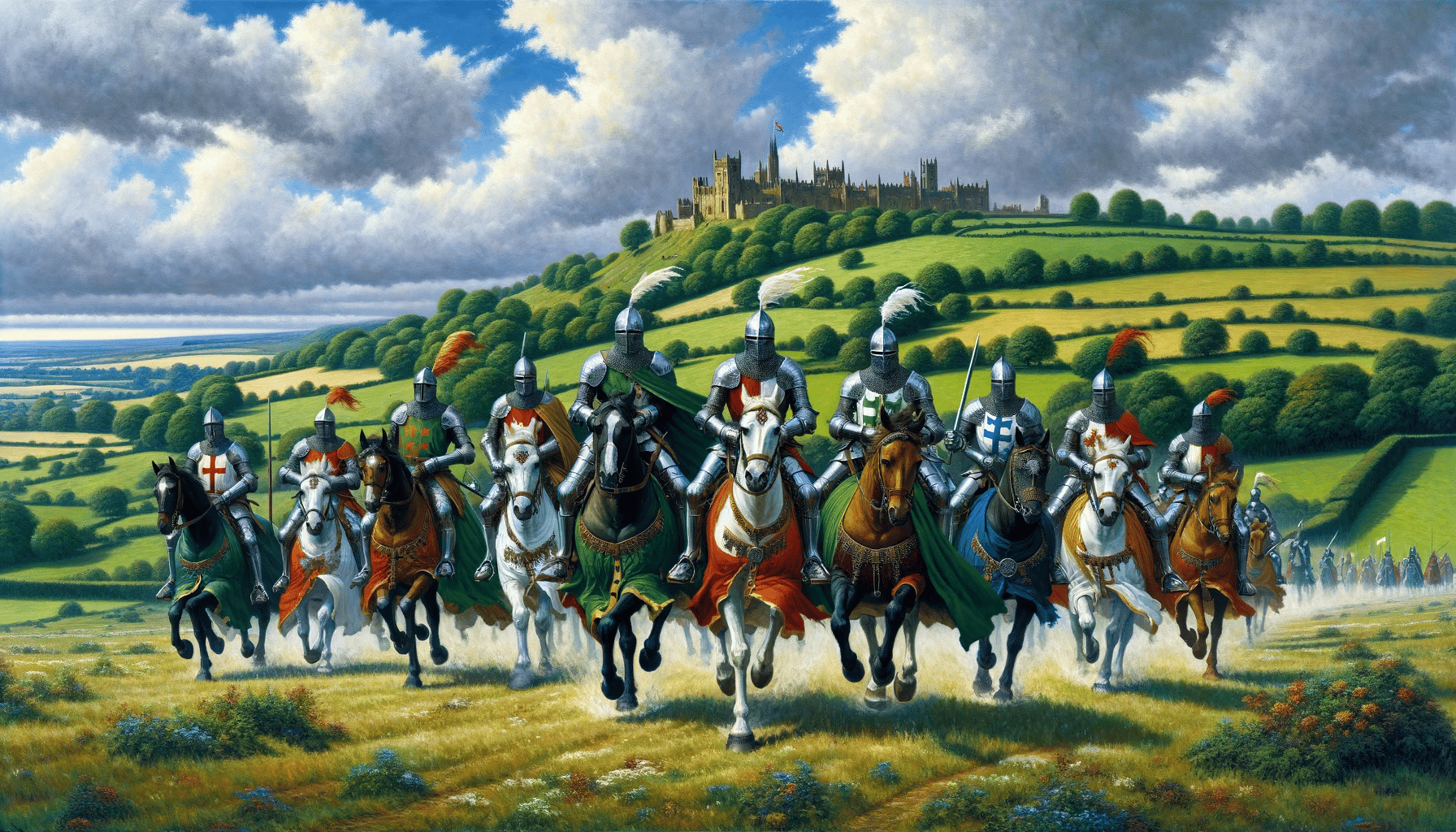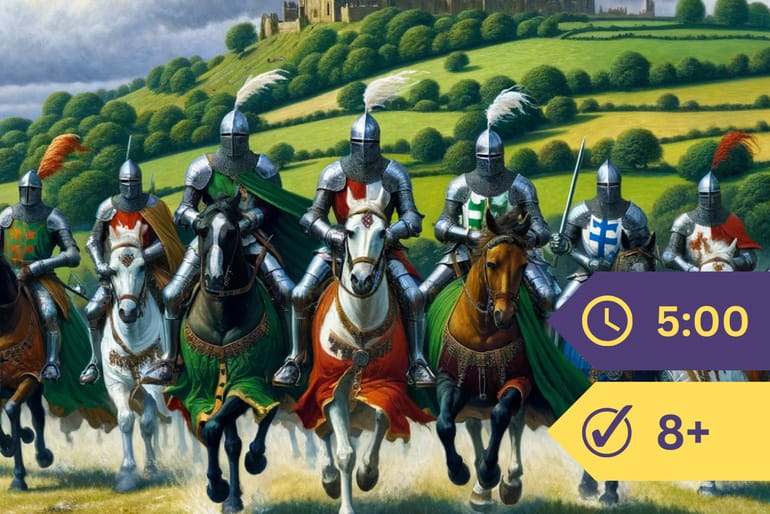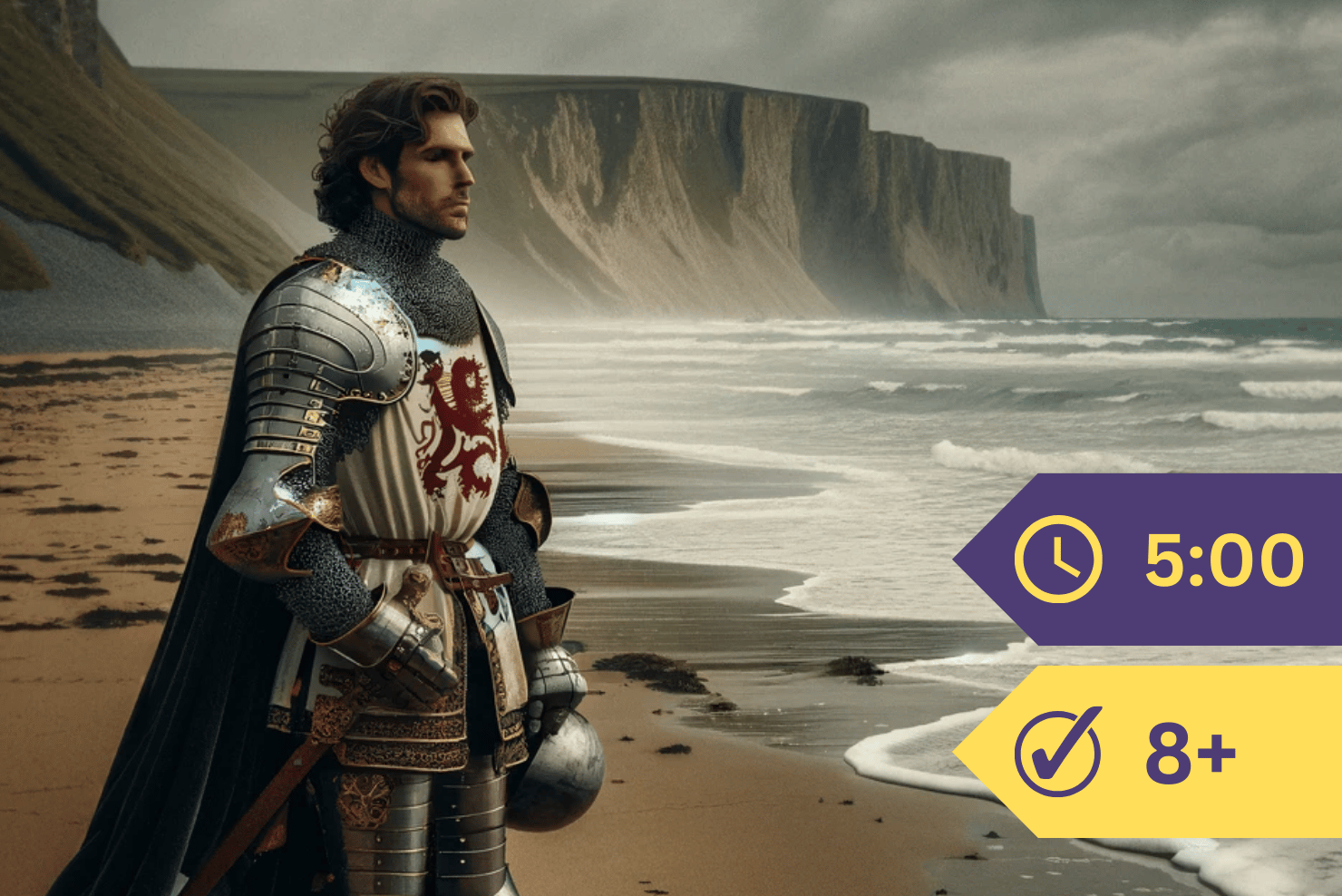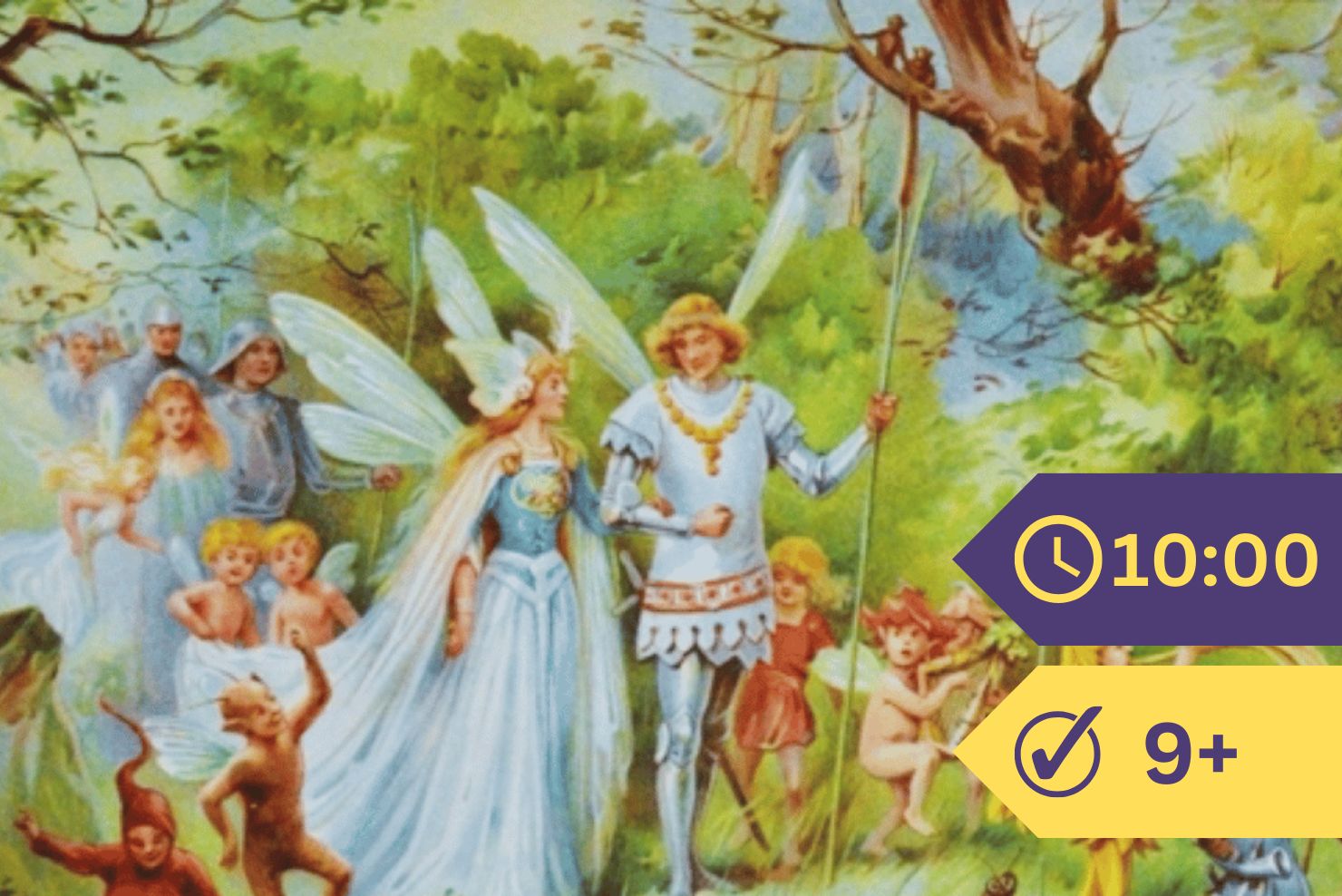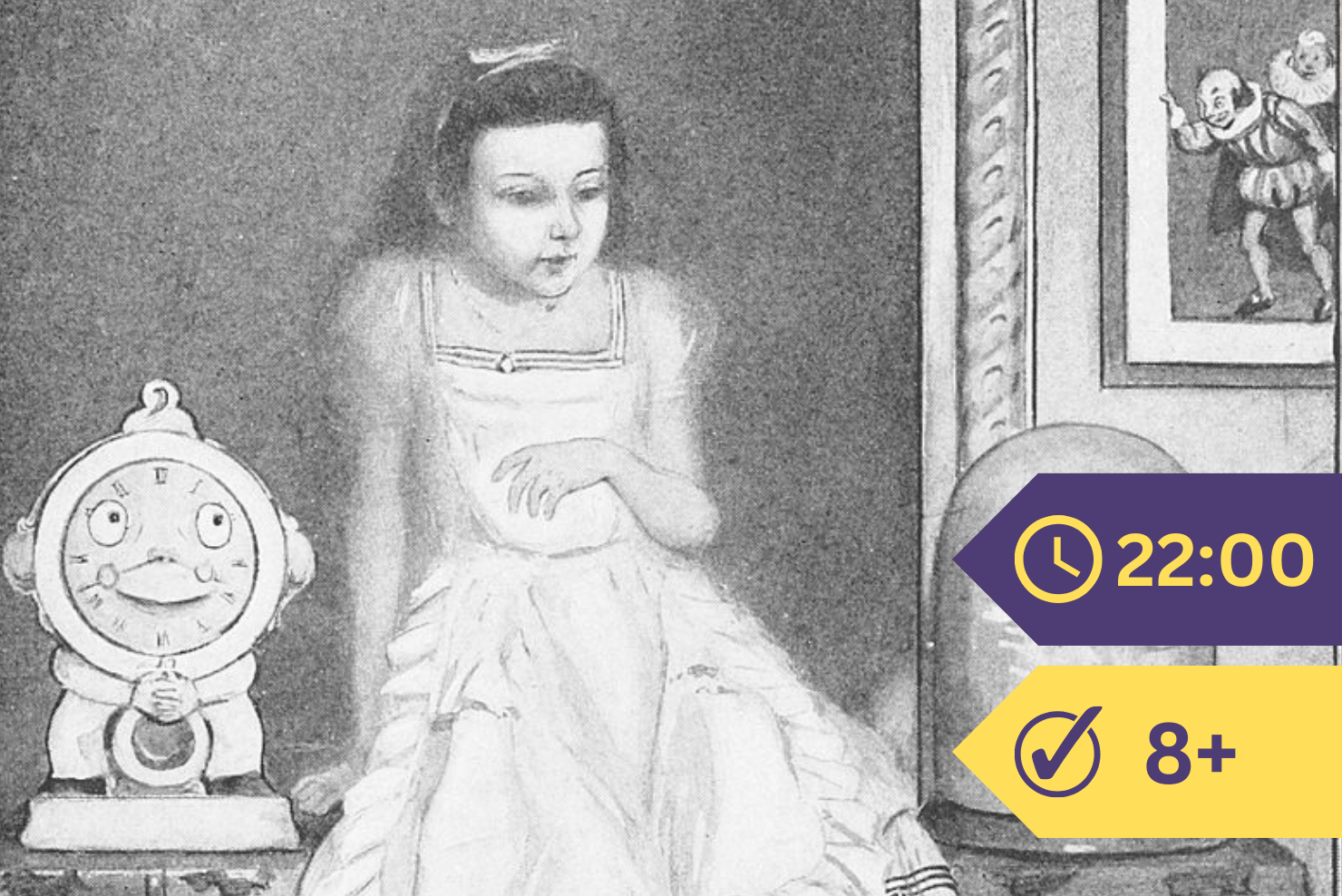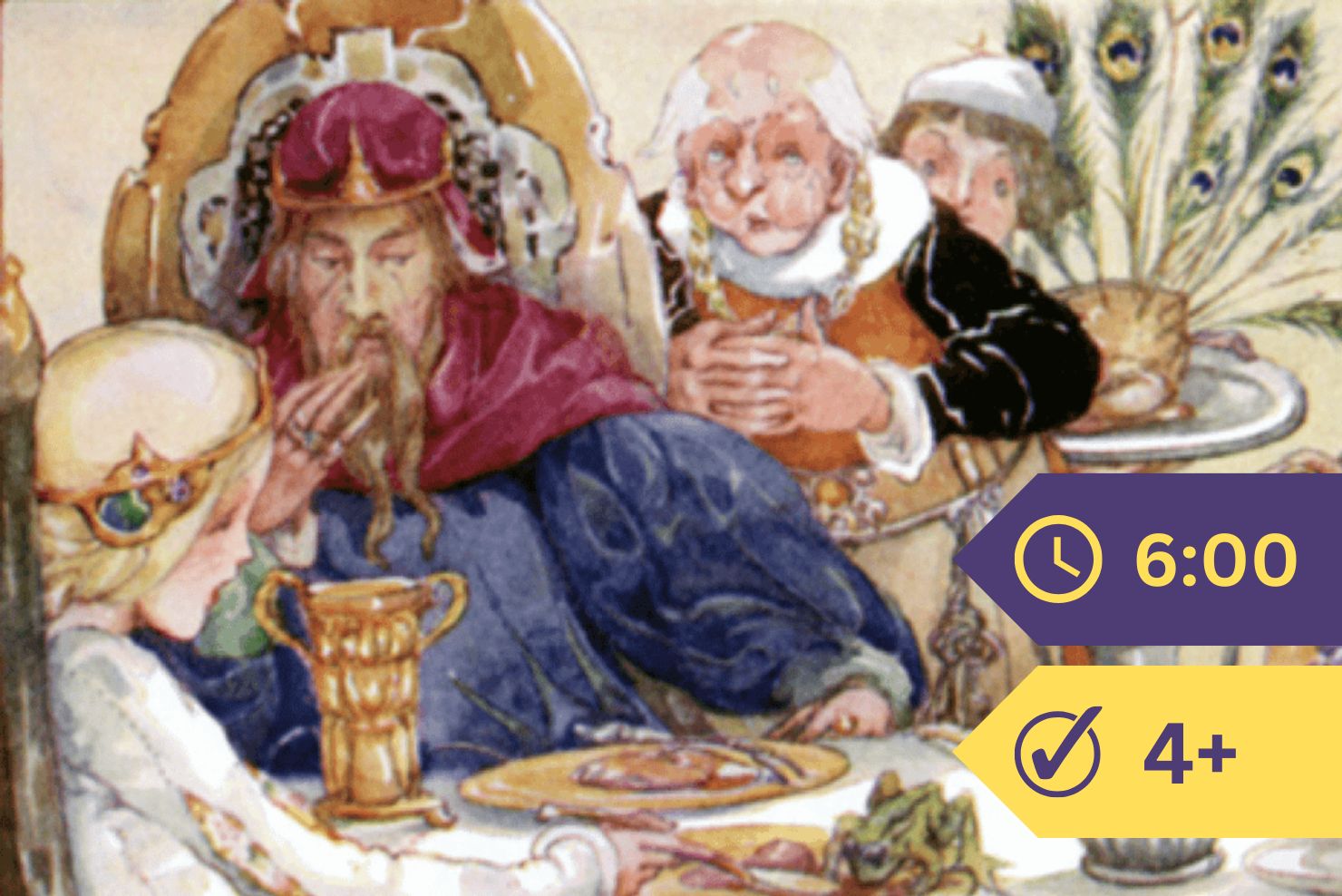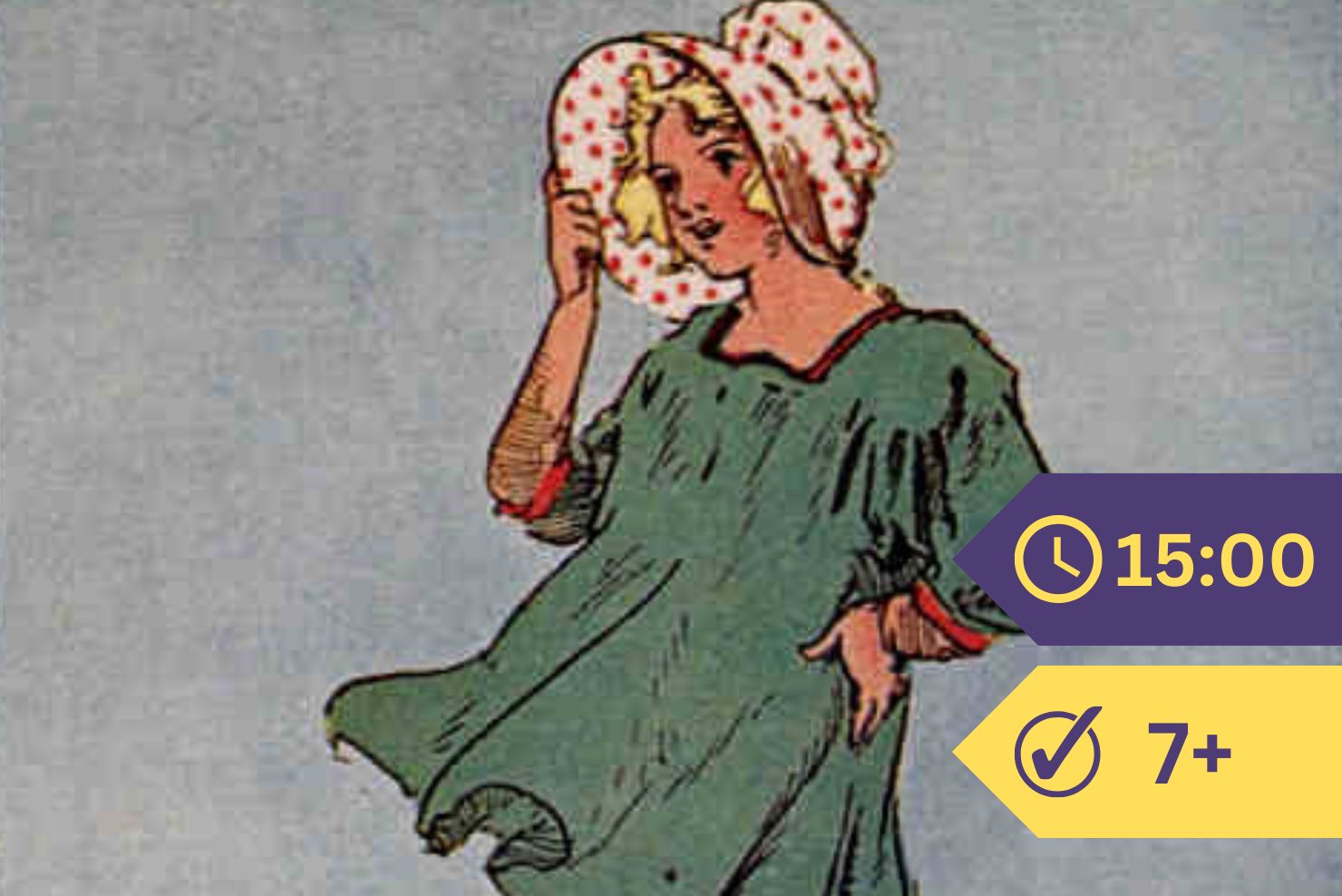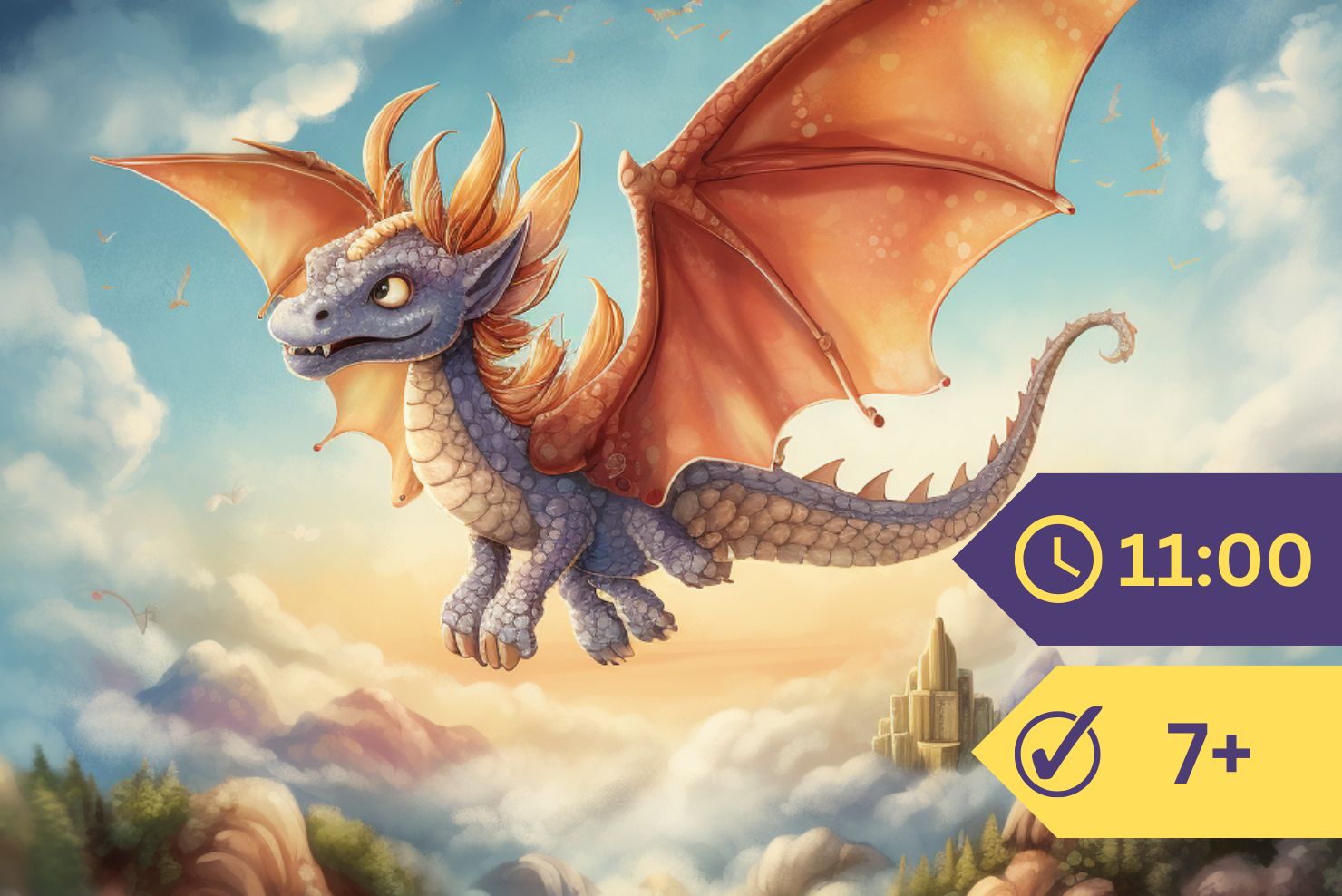Great woe was there in Camelot next day when, after worship in the cathedral, the knights who had vowed themselves to the Quest of the Holy Grail got to horse and rode away. A goodly company it was that passed through the streets, the townfolk weeping to see them go; Sir Launcelot du Lac and his kin, Sir Galahad of whom all expected great deeds, Sir Bors and Sir Percivale, and many another scarcely less famed than they. So they rode together that day to the Castle of Vagon, where they were entertained right hospitably, and the next day they separated, each to ride his own way and see what adventures should befall him.
So it came to pass that, after four days’ ride, Sir Galahad reached an abbey. Now Sir Galahad was still clothed in red armor as when he came to the king’s court, and by his side hung the wondrous sword; but he was without a shield. They of the abbey received him right heartily, as also did the brave King Bagdemagus, Knight of the Round Table, who was resting there. When they had greeted each other, Sir Galahad asked King Bagdemagus what adventure had brought him there. “Sir,” said Bagdemagus, “I was told that in this abbey was preserved a wondrous shield which none but the best knight in the world might bear without grievous harm to himself. And though I know well that there are better knights than I, to-morrow I purpose to make the attempt. But, I pray you, bide at this monastery awhile until you hear from me; and if I fail, do ye take the adventure upon you.” “So be it,” said Sir Galahad.
The next day, at their request, Sir Galahad and King Bagdemagus were led into the church by a monk and shown where, behind the altar, hung the wondrous shield, whiter than snow save for the blood-red cross in its midst. Then the monk warned them of the danger to any who, being unworthy, should dare to bear the shield. But King Bagdemagus made answer: “I know well that I am not the best knight in the world, yet will I try if I may bear it.” So he hung it about his neck, and bidding farewell, rode away with his squire.
The two had not journeyed far before they saw a knight approach, armed all in white mail and mounted upon a white horse. Immediately he laid his spear in rest and, charging King Bagdemagus, pierced him through the shoulder and bore him from his horse; and standing over the wounded knight, he said: “Knight, thou hast shown great folly, for none shall bear this shield save the peerless knight, Sir Galahad.” Then, taking the shield, he gave it to the squire, and said: “Bear this shield to the good Knight Galahad and greet him well from me.” “What is your name?” asked the squire. “That is not for thee or any other to know.” “One thing I pray you,” said the squire; “why may this shield be borne by none but Sir Galahad without danger?” “Because it belongs to him only,” answered the stranger knight, and vanished.
Then the squire took the shield and setting King Bagdemagus on his horse, bore him back to the abbey where he lay long, sick unto death. To Galahad the squire gave the shield and told him all that had befallen. So Galahad hung the shield about his neck and rode the way that Bagdemagus had gone the day before; and presently he met the White Knight, whom he greeted courteously, begging that he would make known to him the marvels of the red-cross shield. “That will I gladly,” answered the White Knight. “Ye must know, sir knight, that this shield was made and given by Joseph of Arimathea to the good King Evelake of Sarras, that, in the might of the holy symbol, he should overthrow the heathen who threatened his kingdom. But afterward, King Evelake followed Joseph to this land of Britain, where they taught the true faith unto the people who before were heathen. Then when Joseph lay dying, he bade King Evelake set the shield in the monastery where ye lay last night, and foretold that none should wear it without loss until that day when it should be taken by the knight, ninth and last in descent from him, who should come to that place the fifteenth day after receiving the degree of knighthood. Even so has it been with you, sir knight.” So saying, the unknown knight disappeared and Sir Galahad rode on his way.
